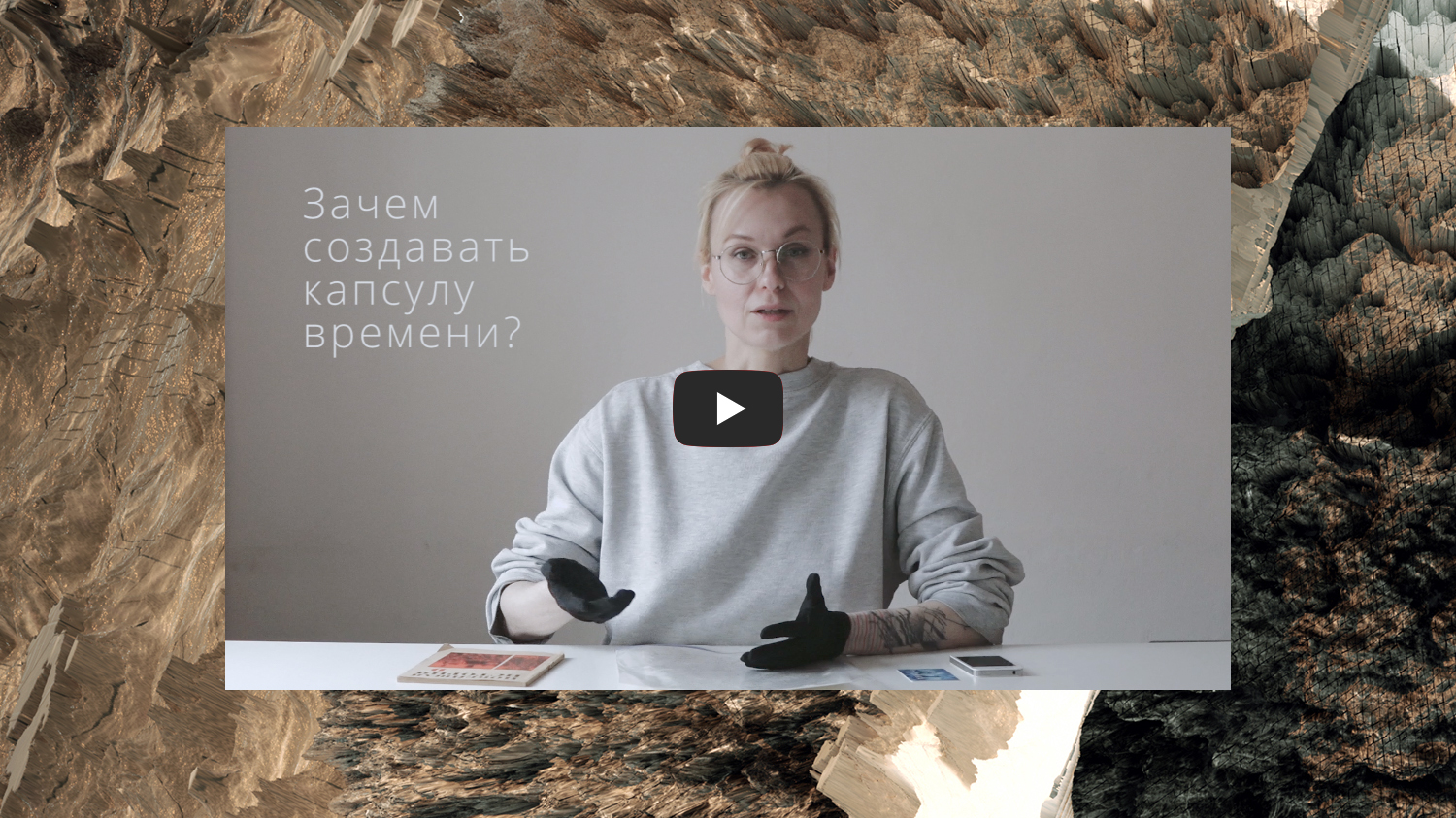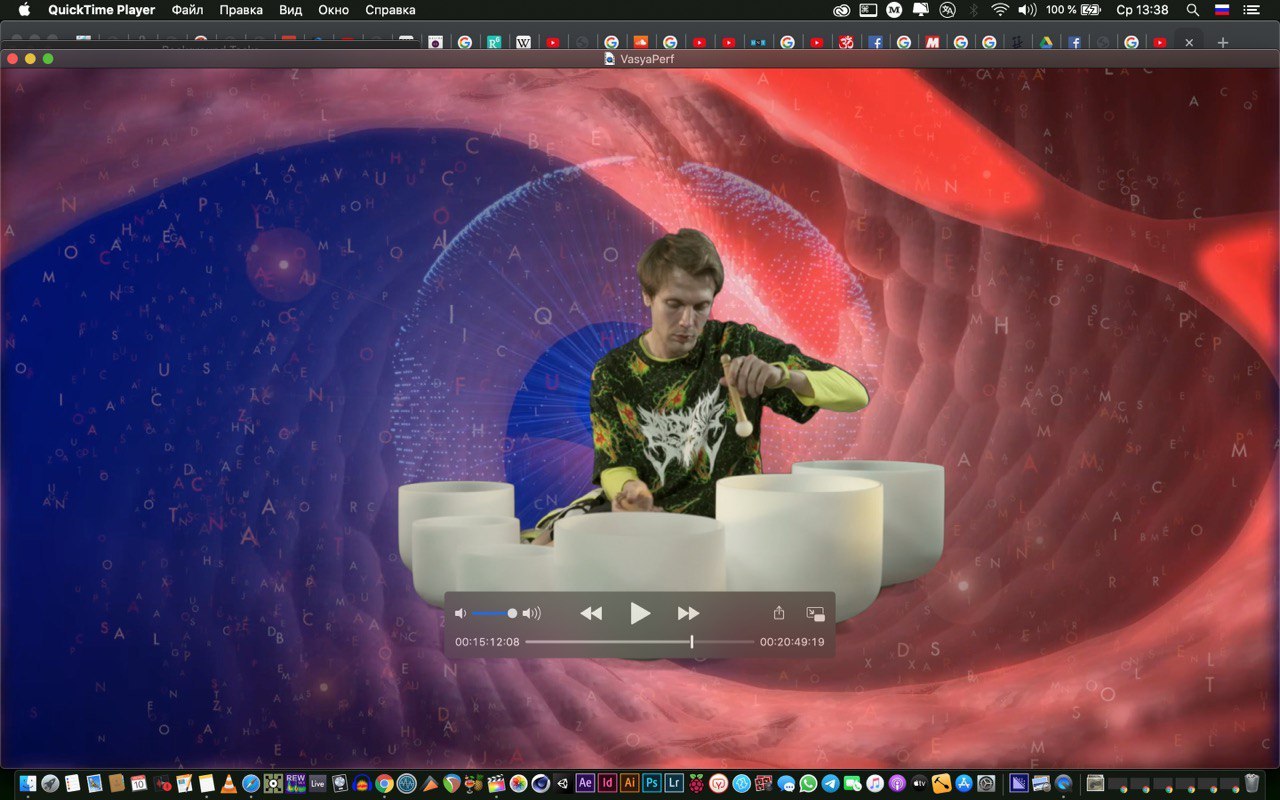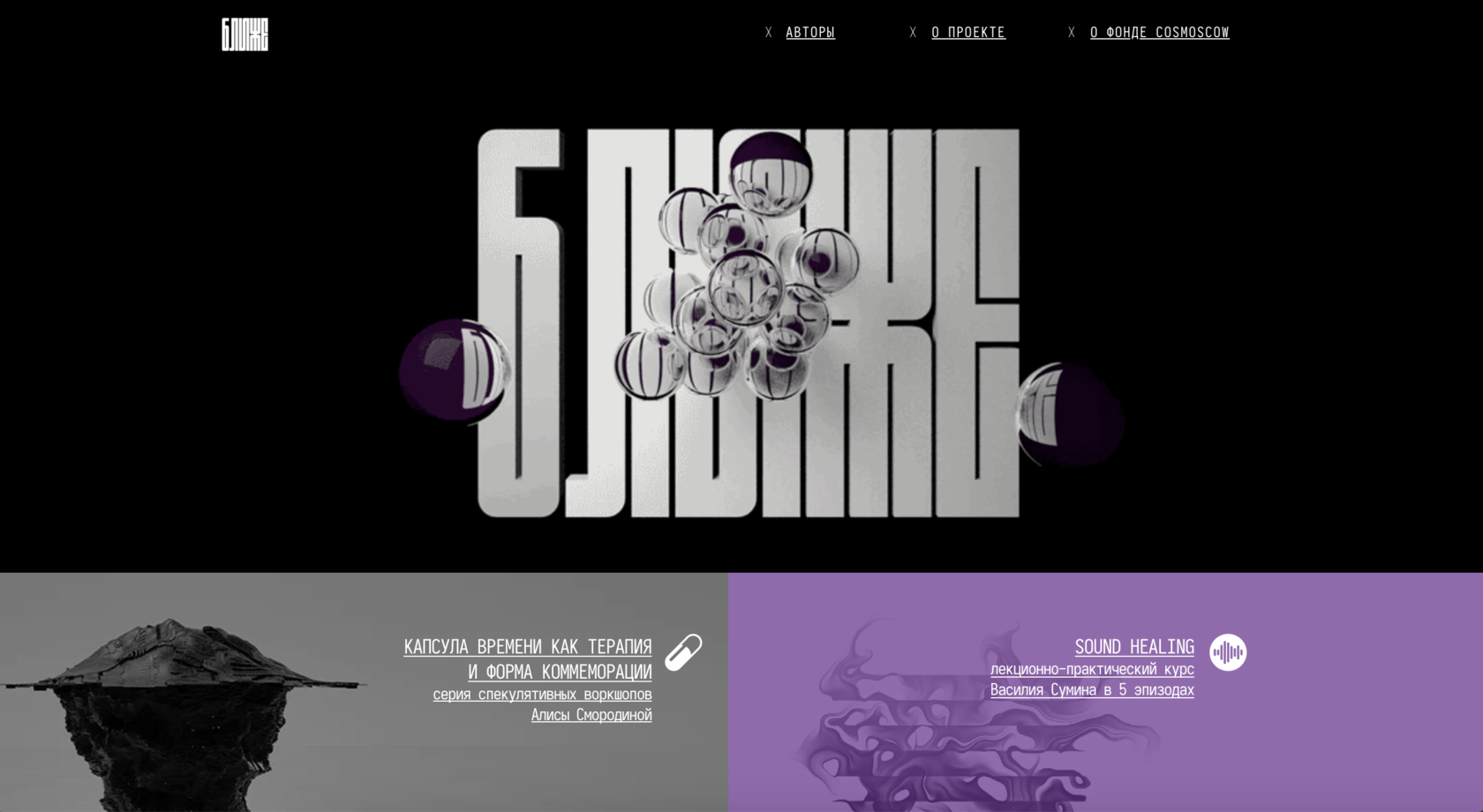“Blizhe” (means ”Closer” in Russian) platform is a new initiative of the Cosmoscow Foundation for Contemporary Art implemented as a part of the “Common Cause” competition of the “Effective Philanthropy” charity program of The Vladimir Potanin Foundation. The main objective of the platform is testing the opportunities of distant learning in the field of contemporary art and supporting experimental forms of online education (webinars, podcasts, online workshops, virtual conferences, and performative lectures) created by leading young Russian artists who raise questions of art's social role in their practices and use methods of critical, experimental, and feminist pedagogy in their artistic strategies. The platform was launched on June 15, 2020. By the end of the year, 15 complete author's educational courses will have been available on the platform's website.
Offering a wide range of online courses on a regular monthly basis – from workshops for children and teenagers to performative lectures on the history of art and audio podcasts, the participants of the project will become active agents in understanding the potential of remote education in the field of art and will demonstrate a fundamentally new alternative to existing online schools. Project participants will examine the idea of distant learning as a practice that radically changes the thinking process from a different perspective to create a situation where the place of educational initiatives within a larger cultural narrative can be reconsidered.

Alisa Smorodina "Time сapsule as a therapy and form of commemoration"
The coronavirus pandemic (COVID-19) has triggered unprecedented measures that have led many cultural workers to losing their jobs, livelihood, or social security, and made freelance cultural workers and artists particularly vulnerable. They have been unable to pay rent, utilities, medical bills, mortgages, and buy food for themselves and their loved ones. “Blizhe” platform takes on the social mission of supporting artists and curators who have lost their work, providing them with a platform for earning and creative development.
Contemporary curatorship and artistic practice are marked by a turn towards education. Since the mid-2000s, educational formats, methods, programs, models, terms, processes and procedures have become widespread both in the field of curating, production of contemporary art and in the accompanying critical framework. Curators, artists, and other art professionals are increasingly creating collaborative projects with communities and institutions based on strategies derived from the tradition of critical pedagogy. The number of curatorial and artistic projects, both dedicated to education within the art space and its problems and addressing various educational methods, continues to grow. This trend is described by art theorist Irit Rogoff as an "educational turn" in curatorial and artistic practices. At the same time, some educators in museums and art institutions are developing new learning concepts with the intention of re-appropriating practices that they believe were captured by curators. In addition, in the last decade, discussions of "an artistic research" and "art as knowledge production" have flooded both art-critical periodicals and academic art criticism literature, as well as almost all the currently available discursive platforms of the art system, becoming one of the main concepts of modern art discourse. Together with the "educational turn", these concepts have become a consequence of the current political and economic reality of modern art, reflecting the general changes in the fundamental economic structures and mechanisms, as well as forms of social production, and contribute to rethinking the role and place of art in the new political, economic, socio-cultural and, most importantly, technological realities.

Vasily Sumin "Sound Healing"
The COVID-19 pandemic in spring of 2020 resulted in the increasing spread of distant learning and online schools, encouraging many practitioners to redesign their courses for new realities. “Blizhe” platform is conceived as a testing ground for experimental distance learning opportunities for Russian artists who use educational formats in their practices and are driven by a sincere interest in the latest scientific achievements and technologies, innovative educational models, themes and research methods, demonstrating a wide range of participatory practices that are possible to use in artistic and educational projects for different audiences.
Access to all educational courses placed at “Blizhe” platform will be free and available to everyone. “Blizhe” platform was developed in accordance with the mission of the Cosmoscow Foundation for Contemporary Art and is aimed at providing everyone with an access to educational resources and programs of contemporary art, implementing educational programs involving world-famous experts to promote contemporary art to the widest audience, establishing a dialogue between artists, art historians, art critics, curators, collectors and connoisseurs of contemporary art in Russia and abroad.
The 15 Russian artists and art collectives, who won the open competition held by the Cosmoscow Foundation from 20th to 31st May, 2020 have become the authors of the courses:
1. Alisa Smorodina "Time сapsule as a therapy and form of commemoration", a series of speculative workshops
2. Vasily Sumin "Sound Healing", a lecture and practical course in 5 episodes
3. Anonymous group VASYARUN "Overview of somatic approaches," video course and podcasts
4. Vladimir Kartashov "Re-transformation: creating post-virtual objects", a series of master classes in Twitch
5. Lera Lerner "Each time getting more of a circle. Related. Disсonnected", performative lectures and interviews with the participation of Fedor Hiroshige, Alexandra Gart, Alexander and Lisa Tsikarishvili, Dagnini, Nestor Engelke, Petr Shvetsov, Maria Danzis
6. Anna Leonova, Sasha Puchkova "Ruins of the stream", lecture and practical course on creating a digital object in the art field
7. Jana Romanova, Maria Morina " What do I see?", lectures and participatory experiments in Zoom, Google presentations, Milanote, Сoggle.it
8. Sergey Morozov "Voice in art", a series of conversations about the voice with composers, musicians, artists and critics of contemporary art
9. Alexandra Portyannikova "Dancefloor Mycelium", online laboratory
10. Tatyana Danilevskaya, Nikolay Alekseev "Workshop on conscious coincidences"
11. Maria Gorodeckaya "Unlearnt", a course of five Arcana cards
12. iBiom collective "Four ways to save the world before it collapses", online conference
13. Anna Rotaenko "Contemporary art in memes", a course of five seminars for teenagers, applicants and students of art higher schools
14. Alyona Papina "Site-specific art: introduction to the discourse of space and place", practice-oriented educational course
15. NOGR collective "botable TALKS", a series of audio lectures and dialogue podcasts written on behalf of the telegram bot
Alexander Burenkov, curator of the Cosmoscow Foundation, became the curator of “Blizhe” platform.

